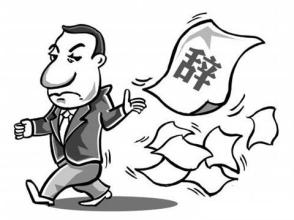服务承诺
 资金托管
资金托管
 原创保证
原创保证
 实力保障
实力保障
 24小时客服
24小时客服
 使命必达
使命必达
51Due提供Essay,Paper,Report,Assignment等学科作业的代写与辅导,同时涵盖Personal Statement,转学申请等留学文书代写。
 51Due将让你达成学业目标
51Due将让你达成学业目标 51Due将让你达成学业目标
51Due将让你达成学业目标 51Due将让你达成学业目标
51Due将让你达成学业目标 51Due将让你达成学业目标
51Due将让你达成学业目标私人订制你的未来职场 世界名企,高端行业岗位等 在新的起点上实现更高水平的发展
 积累工作经验
积累工作经验 多元化文化交流
多元化文化交流 专业实操技能
专业实操技能 建立人际资源圈
建立人际资源圈Chinese studies on employee turnover decision making --Assignment代写范文
2016-09-20 来源: 51Due教员组 类别: 更多范文
Assignment代写范文:“Chinese studies on employee turnover decision-making ”,这篇论文主要描述的是中国学术界在早期的时候对我们的员工离职的原因进行了分析和研究,但这些研究的多数是在西方的理论模型的基础下进行,发现在我国影响员工做出离职决策的原因主要分为个体因素、工作因素、组织因素、个人与组织的适宜性、外部环境因素等多方面的因素组成。

Chinese academia began to study employee turnover decision-making in the 1990s, most of the studies were carried out based on theoretical models from Western academia. The following content is a review of China's major studies on employee turnover decision-making.
Fu, Ling, Fang (2002) attributed factors affecting employee turnover decision-making to individual factors (education level, performance, tenure, etc.); work-related factors (role ambiguity and role conflict, task diversity, work environment, etc.); organizational factors (institutional factors such as the reward system, organizational structure, organizational management, etc.), individual-organizational suitability (suitability between individual preferred atmosphere and organizational atmosphere, for example, an applicant will determine the suitability of an organization in values, moral atmosphere, personality and other aspects); external environmental factors (labor market conditions, job opportunities outside an organization, employment situation, social and economic environment, etc.); factors (organizational commitment, job satisfaction, perceived influence, perceived opportunities, job expectations, etc.) related to attitudes and other internal psychological processes.
Ma, Chen, Wang (2003) divided factors affecting employee turnover into three levels: social level (active labor market conditions; economic factors); organizational level (organizational factors, including organizational change, organizational characteristics, organizational justice, etc. ; work factors, including work attitude, nature of work, relationships, etc.); individual level (demographic factors, including educational background, marital status, tenure, income, etc.; psychological and family factors).
Zhao, Liu, Zhang (2003) believed that factors impacting turnover intention can be divided into: macroeconomic factors (such as the level of economic development, labor market, employment system, etc.); business factors (such as firm size, reward systems, corporate management model); individual attitude towards work (such as job satisfaction, working pressure, organizational commitment, etc.); individual demographic variables and factors of personal characteristics (such as age, gender, education level, etc.); personal factors which have nothing to do with work (such as spouse, family responsibilities, etc.).
Chen and Kim (2010) were based on Chinese and foreign researches on factors affecting employee turnover decision-making to summarize the factors and divided the factors into the following dimensions: demographic variables, including gender, age, education level, etc.; attitudinal factors, including job satisfaction, organizational commitment; work-related factors, including role conflict, role ambiguity, autonomy, task diversity; a sense of fairness and organizational characteristics, including institution, corporate culture etc.; external job opportunities, and so on.
Chinese academia have launched a multi-dimensional, multi-angle, multi-level research on employee turnover decision-making for more than 30 years and built a relatively complete and mature theoretical system. It can be seen that factors impacting employee turnover include: personal factors (age, gender, individual capacity, etc.); enterprise management factors (impact of organizational culture, remuneration system, enterprise management mode, performance appraisal, training system on employees’ job satisfaction, working pressure, sense of belonging); macro factors (level of economic development, labor market conditions, etc.). Enterprise management factors are the most important factor and have been analyzed most.
51due留学教育原创版权郑重声明:原创留学生作业代写范文源自编辑创作,未经官方许可,网站谢绝转载。对于侵权行为,未经同意的情况下,51Due有权追究法律责任。
51due为留学生提供最好的服务,亲们可以进入主页了解和获取更多assignment代写范文 提供美国作业代写以及assignment辅导服务,详情可以咨询我们的客服QQ:800020041哟。-xz



